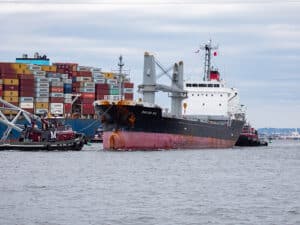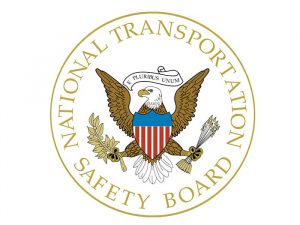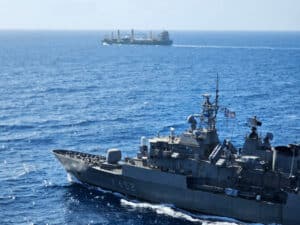
Houthi attacks on ships could bring Suez Canal supply chain crisis
Written by Nick Blenkey
Xeneta chief shipping analyst Peter Sand: “We could see ocean freight shipping rates increase by anything up to 100%.”
Leading shipping analyst Peter Sand is warning that missile and drone attacks by the Houthis on merchant ships passing through the Red Sea and Gulf of Aden could throttle Suez Canal traffic, triggering a global supply chain crisis.
“All ships transiting the Suez Canal must sail through the Red Sea and Gulf of Aden and the Houthi militia has made clear that any vessel is a target,” said Sand, who is chief analyst at ocean freight shipping data and intelligence platform Xeneta. “I do not believe the Suez Canal will close, however, if there are further significant escalations then we cannot rule it out, even if it is just for a few days.
“We saw back in 2021 during the Ever Given incident the severe consequences of a closure of the Suez Canal. Supply chains were plunged into chaos and it took months to restore order.”
Sand made his comments following the news of the missile attack on the Maersk Hamburg. Since then there have reports of further Houthi attacks on merchant ships, including a missile strike on the Hapag-Lloyd containership Al Jasrah, which caused a fire but no injuries, and a similar on the containership MSC Palatium III.
Underscoring Sand’s warning of the impact on Suez Canal traffic, Maersk said today that it would pause all operations through the Red Sea, with Hapag-Lloyd reportedly considering doing likewise.
“We saw back in 2021 during the Ever Given incident the severe consequences of a closure of the Suez Canal. Supply chains were plunged into chaos and it took months to restore order,” said Sand. “The ocean freight industry has been deeply scarred by Ever Given and is frankly terrified of any situation which threatens the closure of the Suez Canal.”
More than 50 vessels transit the Suez Canal every day, carrying billions of dollars of goods to North Europe, Mediterranean and the North America East Coast.
With ongoing restrictions in the Panama Canal due to drought, the latest situation in Suez could not come at a worse time for the ocean shipping industry, says Xeneta,.
“We are already seeing ocean freight liner operators and owners choosing to reroute vessels away from the Red Sea and Gulf of Aden region,” said Sand. “Due to the importance of the Suez Canal to global supply chains, even a small disruption can have big consequences.
“The main alternative is to sail around the Cape of Good Hope, which adds up to 10 days sailing time for services from Asia to North Europe and East Mediterranean.
“We may also see the cost of moving freight by ocean increase dramatically. Depending on the scale and duration of any disruption at the Suez Canal, we could see ocean freight shipping rates increase by anything up to 100%.”




